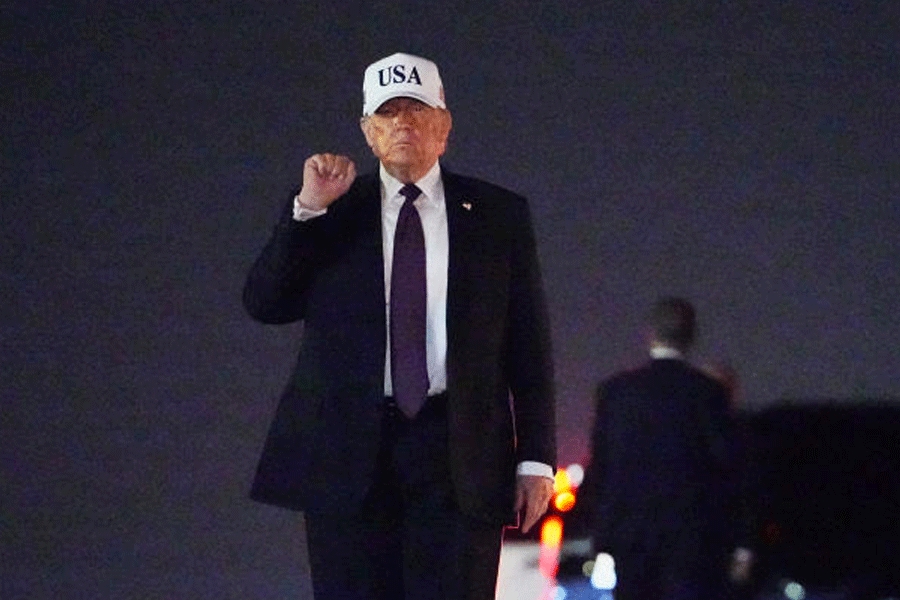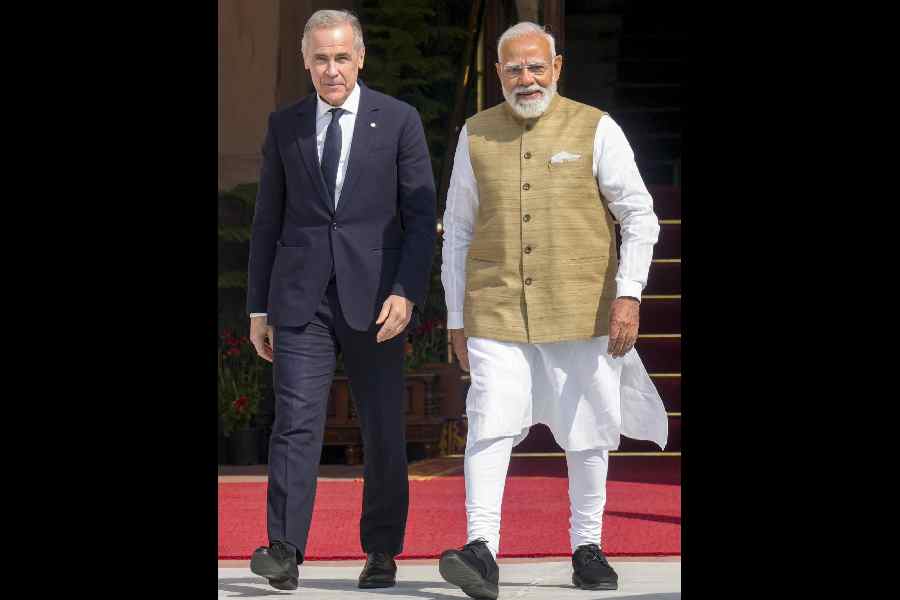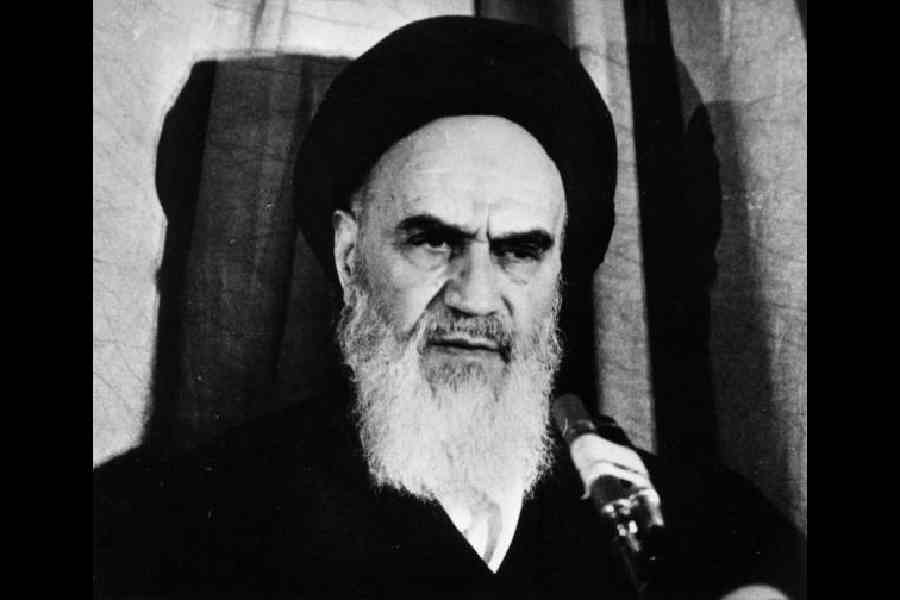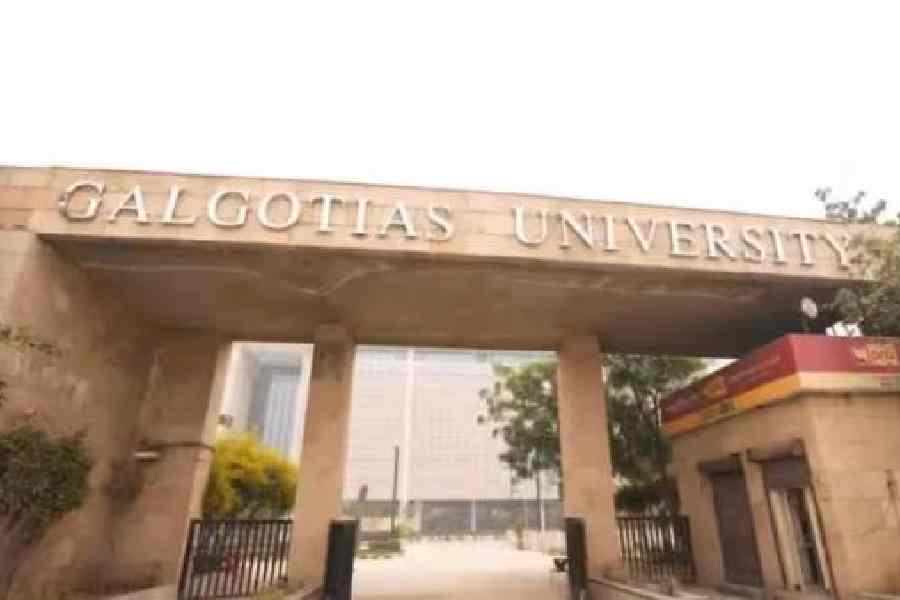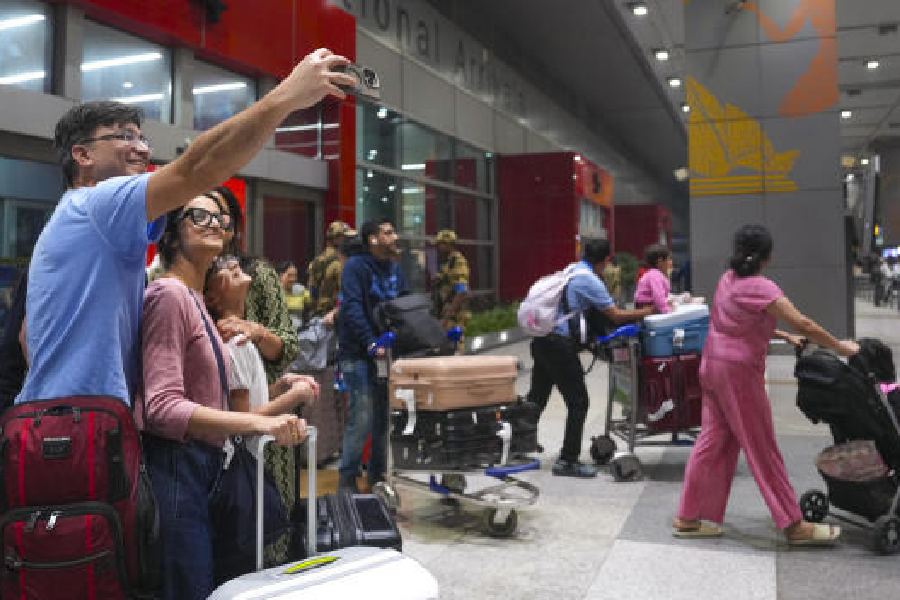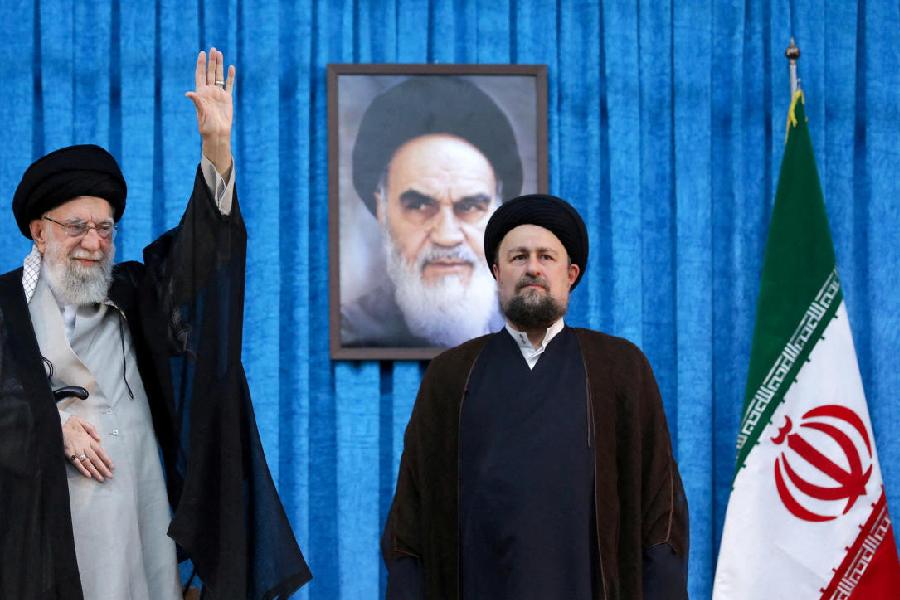 |
| A sketch of some of the 13 conspirators in the Guy Fawkes (third from right) gunpowder plot |
London, Nov. 5: White Britons across the country today joined Indians in sending fireworks hissing across the night sky and dotting the landscape with plumes of flame.
But don’t blame a cultural conquest by Diwali yet, although, like curry and chicken tikka masala, the Indian festival has indeed invaded the UK in a big way. Rather, put it down to a celestial coincidence.
In perhaps a symbolic celebration of today’s multi-cultural Britain, Diwali has fallen on the same date this year as Guy Fawkes Night, which the British celebrate with fireworks and bonfires every November 5.
Leicester city was decked out in lights by the local authority, which had tried in 1972 to keep out the Indians expelled from Uganda by Idi Amin. Ironically, this is the first time since 1972 that Diwali and Guy Fawkes bonfire night have coincided.
In contrast to Diwali’s religious roots, Guy Fawkes Night has a political origin, though today it has become an excuse to let off noisy fireworks, traumatise the pets, light bonfires, roast potatoes, get merry and disappear behind the nearest bush with a partner.
According to reference material, “Guy Fawkes Night originates from the Gunpowder Plot of 1605, a failed conspiracy by a group of provincial English Catholics to assassinate the Anglican King James I of England and VI of Scotland and replace him with a Catholic head of state. The survival of the king was first celebrated on 5 November 1605, after Guy Fawkes, left in charge of the gunpowder placed underneath the House of Lords, was discovered and arrested.”
 |
| Diwali lights in Leicester |
The plot is now marked by the refrain which goes in part: “Remember, remember the Fifth of November/ The Gunpowder Treason and Plot/ I know of no reason/ Why the Gunpowder Treason/ Should ever be forgot/ Guy Fawkes, Guy Fawkes, t’was his intent/ To blow up the King and Parli’ment.”
In all, there were 13 plotters but Guy Fawkes, whose name alone is associated with the conspiracy, cheated a horrible execution by jumping and fatally breaking his neck.
In the bonfires, he is burnt in the effigy by revellers ---- making the night a British Dussehra-and-Diwali-in-one.
Eleanor Nesbitt, a professor in Religions and Education at Warwick University, warned against confusing the deeper meanings of Guy Fawkes and Diwali.
She told a newspaper there would also be many private, spiritual celebrations taking place in Indian homes. “A Diwali celebration may look, to the untrained eye, quite similar to a bonfire night. But there are significant differences: there will be no effigy, for example, and there is a religious aspect.”
Britain’s million Hindus, half-a-million Sikhs and more than a few among the 1.6 million Muslims have been celebrating over the past few days by — in what is now accepted tradition — sending irritating emails featuring flickering flames to lots of people they do not know.
This is the time of year when Indians queue at sweet shops in Asian areas of the country.
But “curry king” Sir Gulam Noon — papers are tipping him for a peerage — told The Telegraph today: “English firms are now buying boxes of sweets for their Asian clients.”
Noon, a director of Bombay Halwa, which makes the popular brand Royal Sweets, added: “That is now the bulk of our business as English firms buy hundreds of boxes. Asian firms also buy boxes for their English clients.”
Today, the threat to the established English order, even in the Commons and the Lords, comes less from gunpowder and more from the curry powder plot, so popular have the likes of tikka masala and bhuna lamb become.
David Cameron and foreign secretary William Hague, who came to India in July, have issued Diwali greetings to the Indians who had a big hand in putting the Tories into power.
Perhaps the only people not celebrating ahead of the “battle of the bonfire” were the fire brigade. Anticipating double the trouble, the Fire Brigades Union called off a threatened strike over pay and conditions that had been planned today and instead urged caution on Hindus and non-Hindus alike.
For the fire-fighters, November 5 is always the busiest night of the year. In London alone, the fire brigade attended 794 serious incidents between November1 and 10 last year with a peak of 224 callouts on November 5. This year it could be worse.
“With bonfire and Diwali celebrations being held across the capital this weekend, London Fire Brigade is urging people to celebrate safely,” said a statement from the capital’s fire service, the world’s third-biggest.
“If you are celebrating Diwali, make sure all candles are in candle holders and never leave them unattended — always keep a bucket of water or a hosepipe nearby in case of emergency.”
Tonight, motorists negotiating the 20 miles from west London to Heathrow on the M4 motorway, which snakes past Greenford, Ealing and Southall, saw the smoke-filled sky lit up every few seconds with fireworks. It was impossible to tell which was Guy Fawkes and which Diwali.


